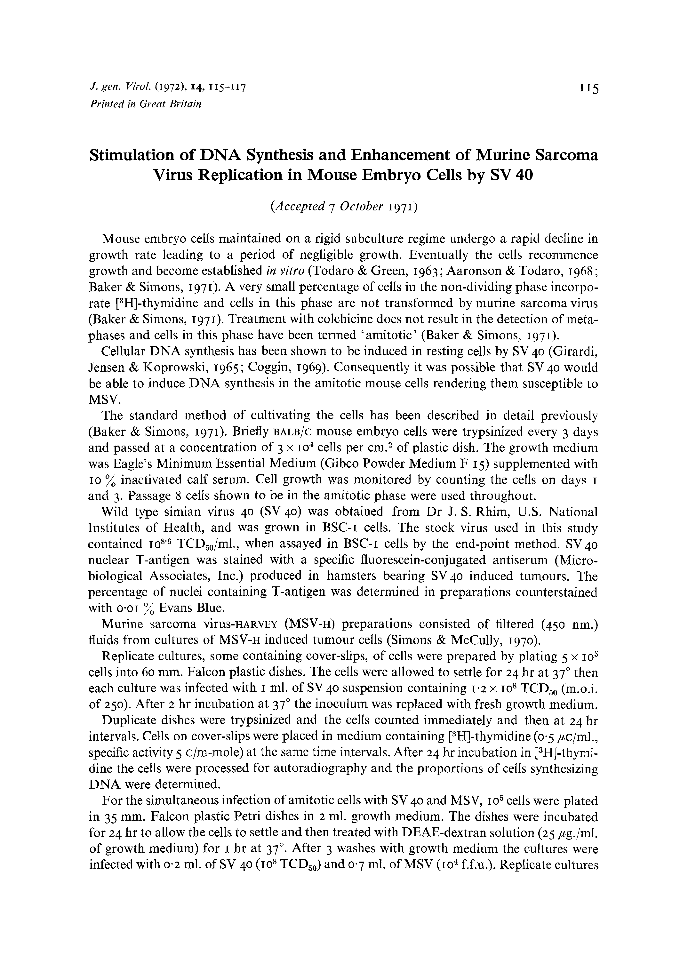
Full text loading...

Stimulation of DNA Synthesis and Enhancement of Murine Sarcoma Virus Replication in Mouse Embryo Cells by SV 40, Page 1 of 1
< Previous page | Next page > /docserver/preview/fulltext/jgv/14/1/JV0140010115-1.gif
There is no abstract available.

Article metrics loading...

Full text loading...
References


Data & Media loading...
